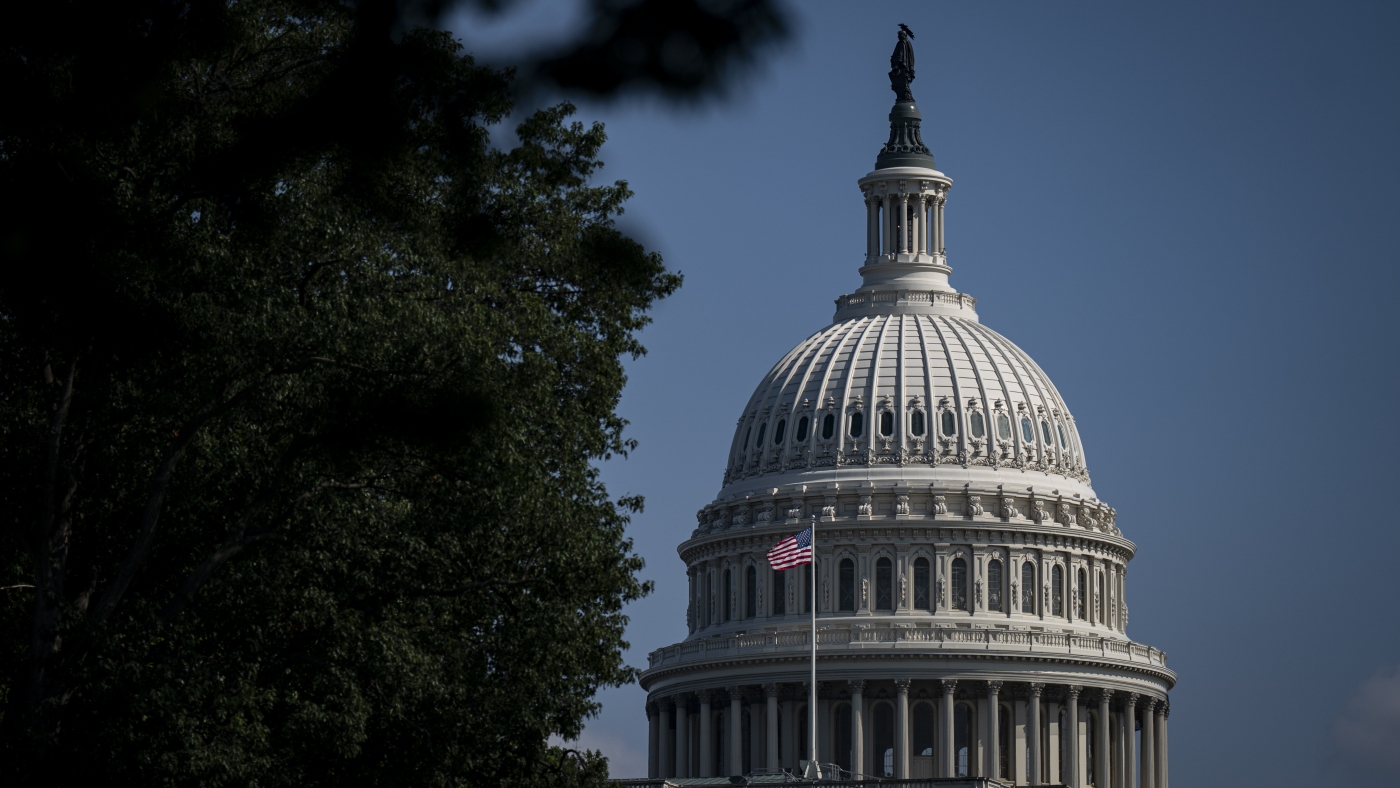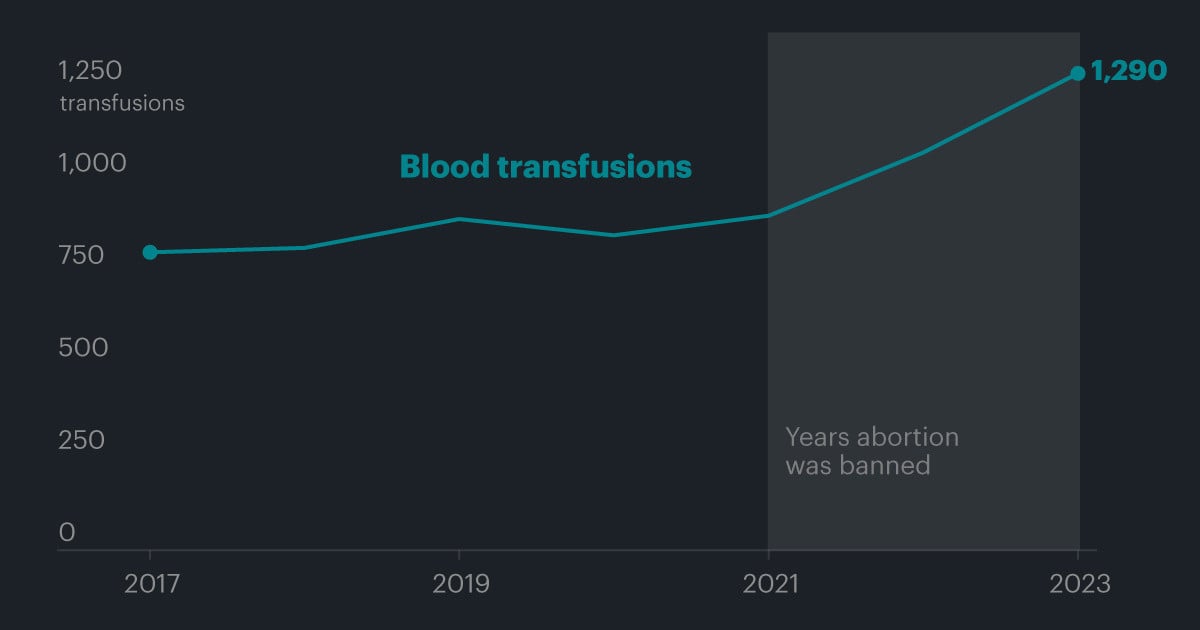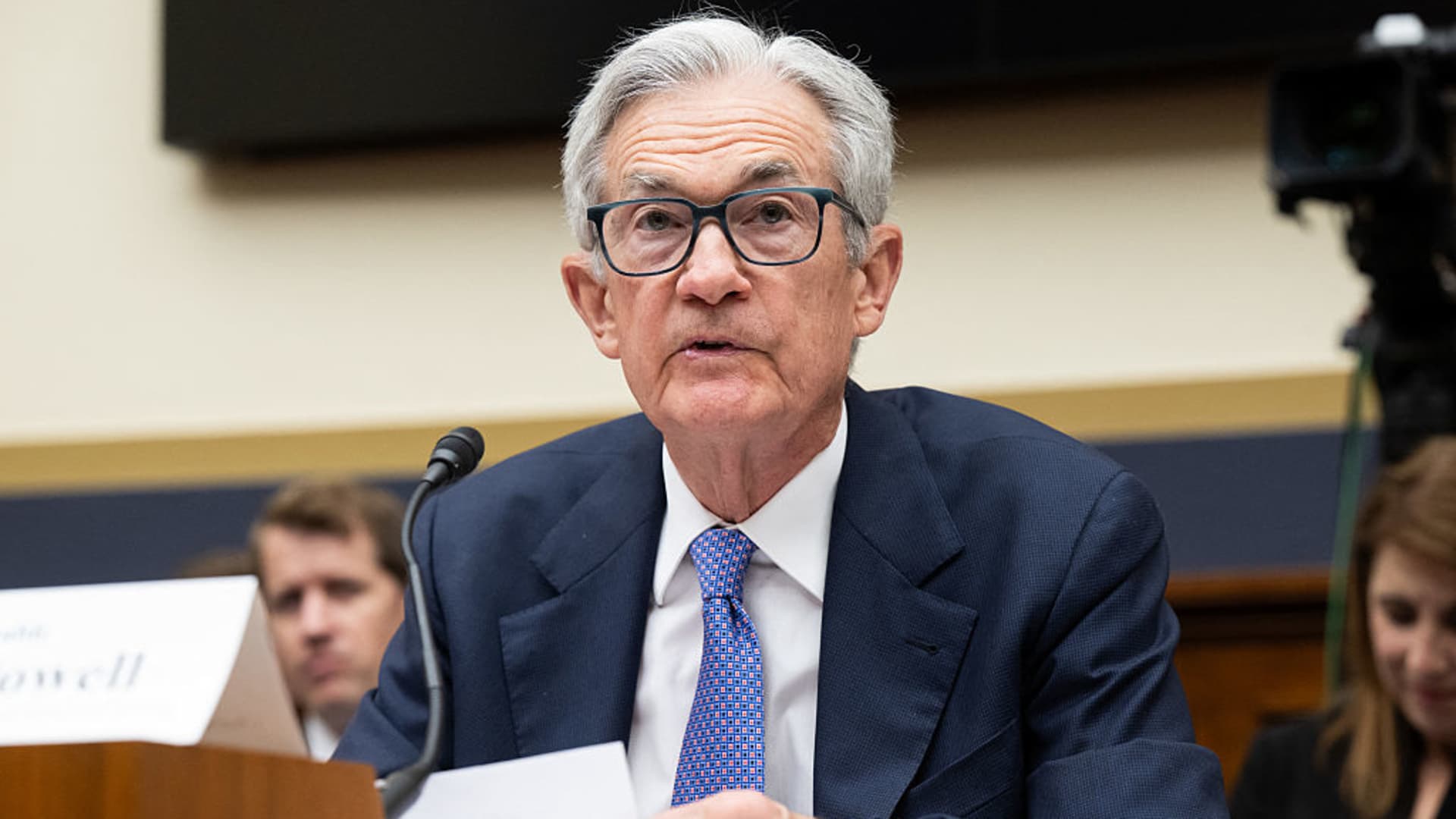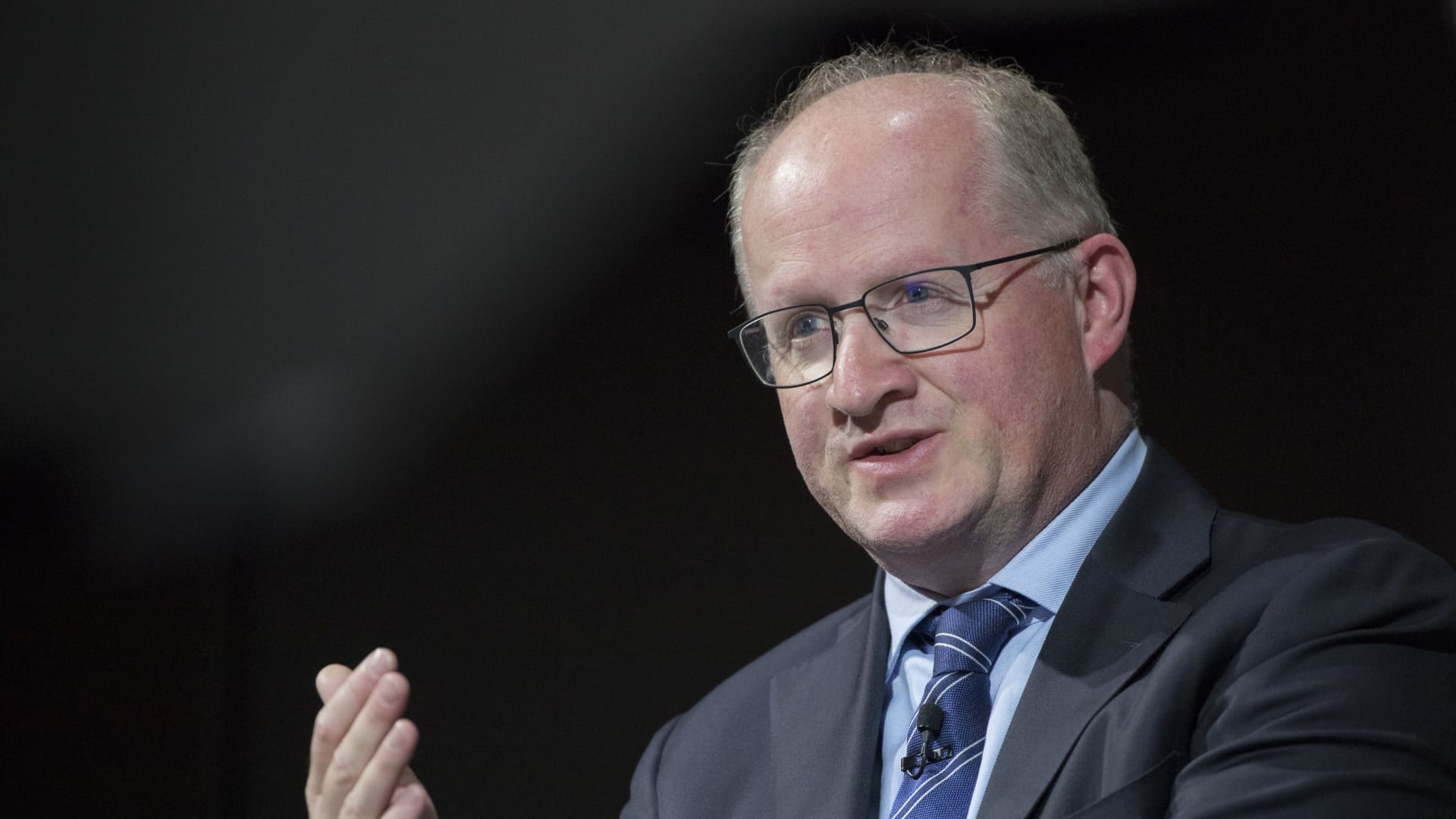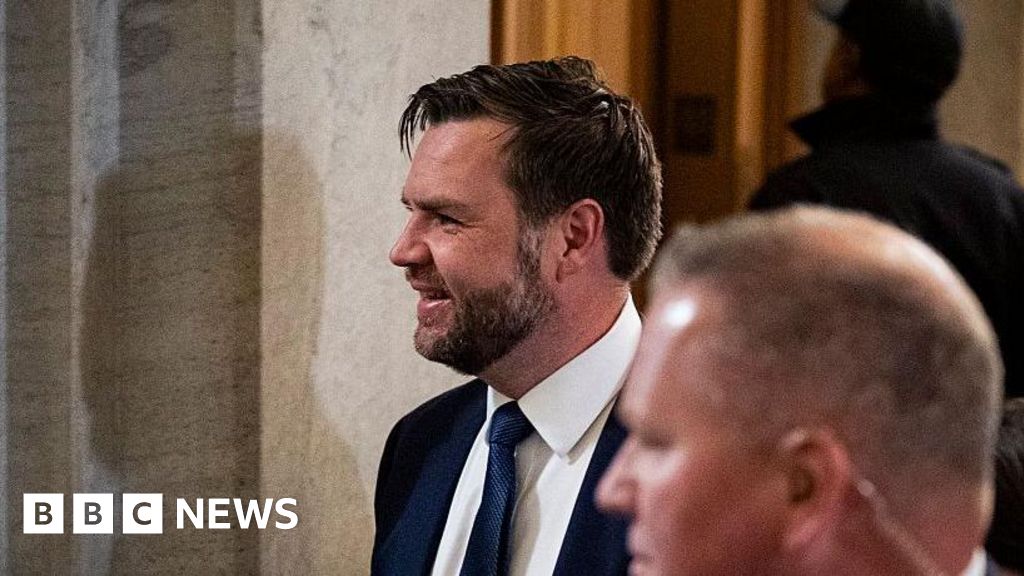The European Central Bank’s latest period of monetary policy interventions to bring inflation in check is “done,” the institution’s chief economist Philip Lane told CNBC on Tuesday.
“We do think the last cycle is done, bringing inflation down from the peak of 10[%], back to 2%, that element is over, but on a forward-looking basis we do need to stand ready to make sure that any deviation we see does not become embedded, does not change the medium-term picture,” Lane said in an interview with CNBC’s Annette Weisbach at the ECB’s annual forum in Sintra, Portugal.
The euro zone inflation rate came in at 1.9% for May, below the central bank’s 2% target. Its key interest rate has meanwhile been cut to 2% from a peak of 4% over the last year, with money market pricing currently suggesting expectations for a further quarter-point rate trim to 1.75% by the end of the year.
Asked what it meant to be “done” with the cycle, Lane said it meant the ECB had managed to remove price shocks from 2021 and 2022 — which stemmed from the energy crisis and supply chain restrictions — from the system. However, he cautioned there were already “new shocks hitting the system” that monetary policy would need to adapt to, and that it remained possible that “there might be some cyclical movements a bit lower.”
Rather than dealing with a price shock, the ECB is now monitoring a mix of energy market moves, exchange rates and inflation expectations to ensure it does not “overreact” to small deviations in inflation. It is also on the watch to not overlook any medium-term changes to the outlook or “persistent” factors impacting the domestic economy.
Risks tilted to downside
Also in Sintra, Belgian central bank chief Pierre Wunsch told CNBC that risks to inflation and growth in the euro area are now tilted to the downside.
“There is a broad consensus that we are very close to [the ECB’s 2% inflation] target now, the job is mostly done,” Wunsch said on Monday evening. Europe has seen two years of “relatively slow growth,” but any recovery may be delayed by global uncertainty, he also noted.
He added that “if we have to move more it probably will be to the downside, a further cut. I’m not pleading for one, but I think if there is any discussion it’s more in that direction.”
The ECB will be monitoring economic data in the coming months to see if there are any improvements in euro zone growth, particularly in production — and the central bank may need to be “a bit more supportive” if it doesn’t, Wunsch said.
This is a breaking news story and will be updated shortly.


